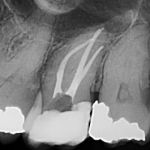Understanding the Importance of Dental X-rays
As part of regular dental check-ups, dental X-rays are one of the most effective tools dentists use to monitor and diagnose oral health. But how essential are these X-rays, and why should you care? In this article, I’ll break down why dental X-rays are crucial for maintaining good oral health and why skipping them might not be in your best interest.
What Are Dental X-rays?
Dental X-rays, also known as radiographs, are images of your teeth, gums, and bones in your mouth. These images help dentists spot problems that are not visible to the naked eye, such as cavities between teeth, bone loss, abscesses, and impacted teeth. Dental X-rays are typically taken during routine dental visits, especially when you’re getting a cleaning or a check-up.
Why Are Dental X-rays Important for Your Health?
Dental X-rays are essential because they allow your dentist to see inside your mouth without making incisions or causing discomfort. With these images, your dentist can:
- Detect Cavities: X-rays can detect early stages of tooth decay, even in places where your dentist cannot see or feel.
- Identify Gum Disease: X-rays provide a view of the bone structure around your teeth, which is vital for identifying gum disease and its severity.
- Examine Root Issues: Some issues, such as abscesses or cysts, can be hidden under the surface. Dental X-rays help in the early detection of these problems.
- Evaluate Bone Loss: For patients with conditions like osteoporosis or those who’ve had periodontal disease, X-rays help in assessing bone loss and planning necessary treatments.
Types of Dental X-rays
There are different types of dental X-rays that serve specific purposes. Some of the most common ones include:
- Bitewing X-rays: These are used to examine the upper and lower teeth in a specific area of the mouth. Bitewing X-rays help in detecting cavities and checking for bone loss.
- Periapical X-rays: These provide a detailed image of an individual tooth, including the root and surrounding bone.
- Panoramic X-rays: This type of X-ray shows the entire mouth in one image, providing a comprehensive view of the teeth, jaw, and sinuses.
- Occlusal X-rays: These are used to examine the development of teeth, the position of adult teeth, and to detect cysts, tumors, or fractures in the jaw.
Are Dental X-rays Safe?
Dental X-rays have been a standard procedure for over a century, and modern technology ensures that they are both safe and effective. While it’s true that X-rays use radiation, dental X-rays have a very low radiation dose, and the benefits far outweigh the potential risks. Dentists and hygienists take all necessary precautions, using lead aprons and thyroid collars to protect sensitive areas of your body.
When Are Dental X-rays Necessary?
Dental X-rays are typically taken based on individual needs, but they are recommended for:
- New patients, to establish a baseline of dental health.
- Patients with risk factors such as a history of gum disease, tooth decay, or jaw problems.
- People experiencing pain or discomfort that may require in-depth evaluation.
- To monitor dental issues like cavities or gum disease in patients who are undergoing treatment.
What Happens If You Don’t Get Dental X-rays?
Skipping X-rays during your dental visits may seem like an easy way to avoid another appointment, but it can lead to missed diagnoses. Without X-rays, your dentist might not be able to detect issues like cavities between teeth, early signs of gum disease, or tooth infections that could spread and cause more severe health problems. Early detection of issues like these helps prevent more invasive treatments down the road.
Real-life Story: How Dental X-rays Saved My Teeth
I remember a time when I neglected getting regular X-rays during my check-ups. I thought my teeth were fine, but after several years, I started experiencing sharp pain in one of my molars. Upon getting an X-ray, my dentist found a deep cavity between the teeth that had been missed during routine check-ups. Had I gotten an X-ray sooner, I could have avoided the intense pain and extensive treatment needed to fix the damage.
Conclusion: Take Care of Your Teeth with X-rays
Dental X-rays are an essential part of maintaining your oral health. They provide a detailed look into the areas that are not visible during a normal examination, helping your dentist spot potential issues before they become major problems. Regular X-rays can help you avoid discomfort, unnecessary treatments, and keep your smile healthy for years to come.







 Dr. Jeffrey C. Liu and Dr. Shaun Dadjoo - Porter Ranch Orthodontists5.0 (57 review)
Dr. Jeffrey C. Liu and Dr. Shaun Dadjoo - Porter Ranch Orthodontists5.0 (57 review) Midland Park Family Dentistry5.0 (447 review)
Midland Park Family Dentistry5.0 (447 review) Summit Dental Care4.0 (124 review)
Summit Dental Care4.0 (124 review) Dental Playground3.0 (35 review)
Dental Playground3.0 (35 review) North Penn Endodontics Group4.0 (87 review)
North Penn Endodontics Group4.0 (87 review) Familia Dental4.0 (458 review)
Familia Dental4.0 (458 review) The Importance of Oral Health Education During Pregnancy for a Healthy Pregnancy
The Importance of Oral Health Education During Pregnancy for a Healthy Pregnancy Best Tips for Brushing Your Teeth Properly for Healthy Gums: Essential Techniques for Oral Health
Best Tips for Brushing Your Teeth Properly for Healthy Gums: Essential Techniques for Oral Health Why Skipping Dental Checkups Can Lead to Bigger Oral Health Problems
Why Skipping Dental Checkups Can Lead to Bigger Oral Health Problems Advantages of Porcelain Dental Restorations
Advantages of Porcelain Dental Restorations How Can Diabetes Cause Tooth and Gum Problems? Preventing and Managing Oral Health Issues
How Can Diabetes Cause Tooth and Gum Problems? Preventing and Managing Oral Health Issues Healthy Habits for Promoting Good Oral Health and Hygiene: Tips for a Healthy Smile
Healthy Habits for Promoting Good Oral Health and Hygiene: Tips for a Healthy Smile